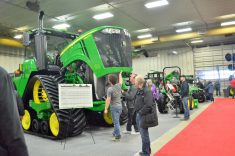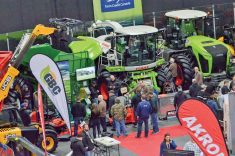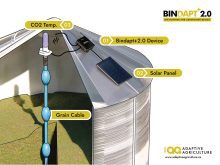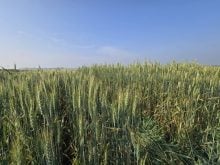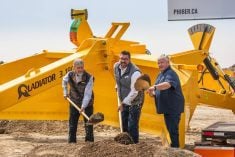Glacier FarmMedia – There is ample opportunity for robots on small farms — if prices can fit with lower economies of scale.
That philosophy is the driving force behind Maryland-based ag-tech startup Easton Robotics. According to founder and chief executive officer Jeff Chandler, however, the idea that small farmers will replace their big tractors with autonomous vehicles, or use them to perform core tasks, is faulty.
Chandler is focused on building scalable ground vehicles for wheat, soybeans, corn, sorghum and other densely planted crops. He believes field robot developers have been too focused on the needs of large farms with large, uniform fields.
Read Also

KAP flags risky trade for Manitoba farmers
Tariffs, market access uncertainty, trade diversification and export infrastructure top the agenda at Keystone Agricultural Producers (KAP) annual meeting.
Those farms have inherently better economies of scale when it comes to buying equipment. The robots designed for them are expensive but suited to their respective physical farm characteristics.
Large equipment is itself better suited to main tasks such as tillage or the collection and movement of grain, which significantly increases the price of autonomy for those looking to employ robots for such purposes.
“The challenge of being a small farmer, you’re working against the odds because economy of scale really favours large farms,” says Chandler. “Thinking we can completely change farm operations is not realistic.”
He believes use of small robots in conjunction with existing equipment is more realistic. While the latter performs tasks best suited to large machinery, the former can focus on input application, crop health monitoring, field maintenance and other duties.
The overall goal, he says, is to change the cost factor by improving yields and reducing expenses through reduced crop losses, better soil health, lighter labour requirements and less time commitment to set up and operate in the field.
Chandler considers it possible, at least potentially, to eliminate most operator and fuel costs via electrically powered machines.
He envisions inexpensive, scalable autonomous machines for farmers in what he calls a “consumer-grade” manner, where the technology and associated parts are widely available through existing equipment dealers and even retail stores.
The potential of small robots as useful small farm tools is based on several assumptions. Electricity must be readily accessible and affordable. The support network for autonomous machines and parts must also be widespread. Liability concerns for unmanned operation are also unresolved.
Cultural memory must be overcome as well, he said. Farmers are comfortable with large-equipment technology and designs. Ease of access and good financing terms make it easier to acquire large machinery.
Still, Chandler believes the success of small robots designed for small farms lies in making affordable machines.
“If they are not affordable for a small farm then we are wasting our time.”
Matt McIntosh is a contributor for Farmtario. His article appeared in the Dec. 13, 2021 issue.



